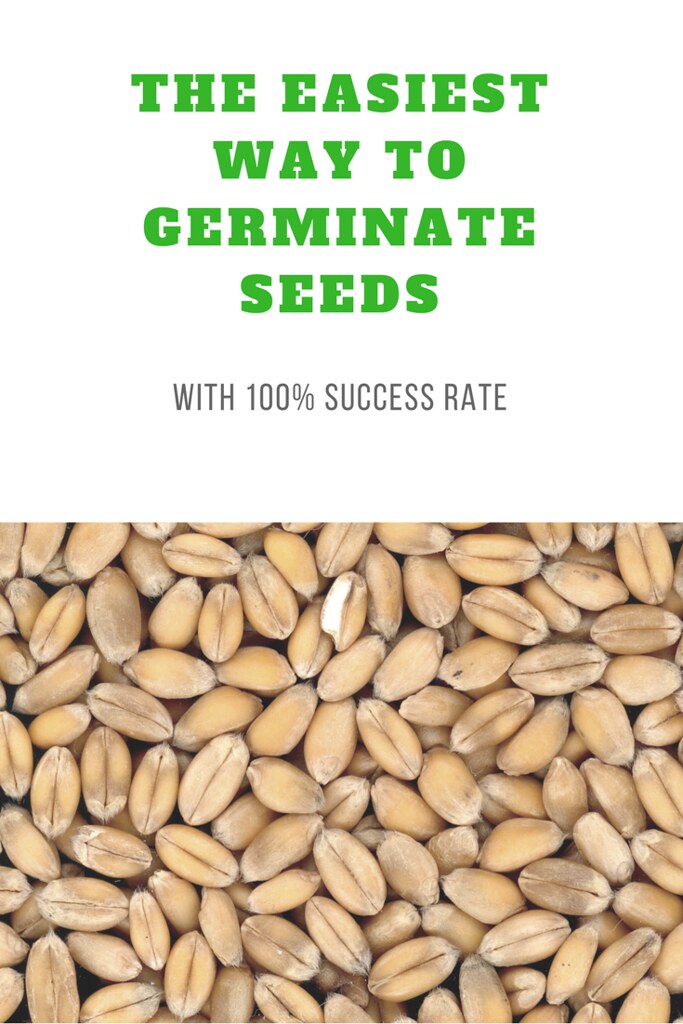
You know what the hardest part of gardening is? Atleast, it is for me. Getting the seeds to germinate, and of course, dealing with pests the organic way.
Germinating seeds might seem like a no-brainer, but it’s a game of patience. One that I never seem to crack for seeds like peppers/capsicum.
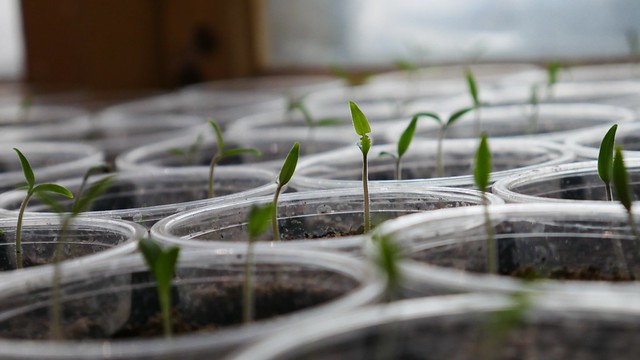
Have you ever wandered into a nursery and looked with awe at those neatly lined seedlings in a tray? I would wonder either they have magic fingers, or there is a trick behind this 100% germination rate.
I haven’t cracked the code yet, but I guess it’s the perfect greenhouse environment + fertilizer for that kinda success rate.
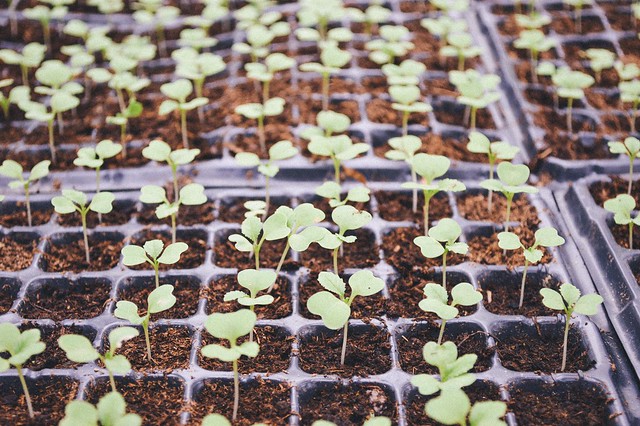
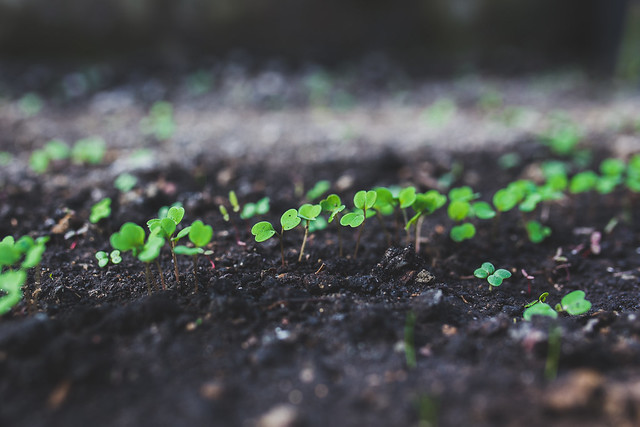
My success with germinating seeds these past two months have been appalling. Tomato, egg plant, capsicum, cucumber, chilli, bitter gourd ~ nada. When they did germinate, I made the mistake of keeping the seedling tray outside. If I forgot to water them for a day, they would dry and die.
With spring drawing to a close, I decided to try a method my son had used for a project two years ago. The kids were asked to germinate mustard seeds in a cotton patch. They had to spray water on the seeds to keep them moist and secure it in a ziplock. He had to observe the progress for a week and report the findings. To my utter surprise, there were 4 inch long mustard seedlings.
I decided to try this method this week and this is what I concluded: it is the easiest and fail safe method to germinate seeds.
HOW TO GERMINATE SEEDS FASTER WITHOUT SOIL:
Follow these easy steps for a 100% success rate in germinating seeds faster:
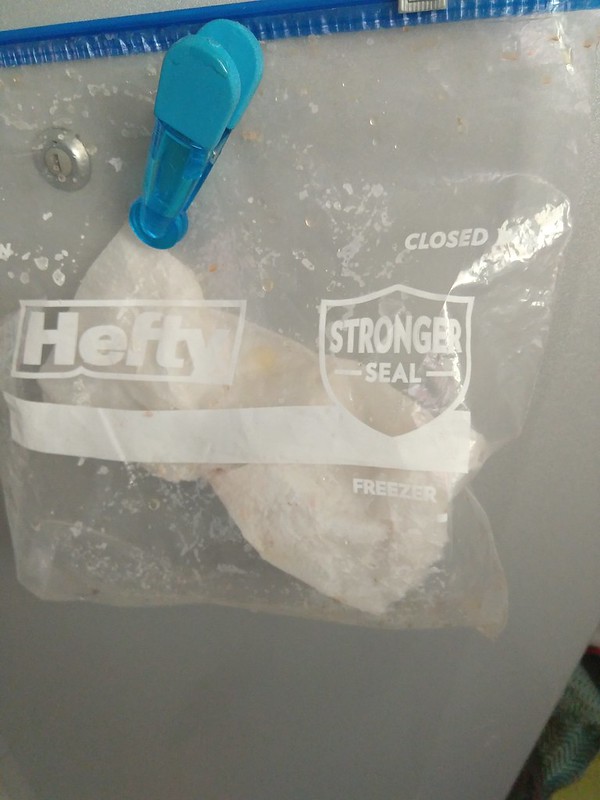
- Take a patch of cotton wool or tissue. Spread it wide and spray the surface gently with water. It should be moist, not dripping wet.
- Sprinkle seeds on the cotton or tissue paper.
- Place the cotton and tissue paper inside a ziplock bag and secure it tight. Keep it in a cool place. I stuck it on the door of my refrigerator (just so I would remember).
- If you are starting too many seeds, remember to make a note of what seeds are sown.
- Take care to not the surface dry out. Keep a close watch to see when the seeds germinate. If the roots grow long enough, it will be difficult to separate them from the cotton.
- Well, well, what do you know. The germination rates vary for different vegetables. Capsicum took about 5 days to germinate, but the success rate was amazing as you can see. Fenugreek germinated within 2 days.
- Pick them up gently using a tweezer and plant it in pots. I had pots ready for these to be transplanted. You can use this method for almost all seeds except carrots, beets, and beans as they are delicate.
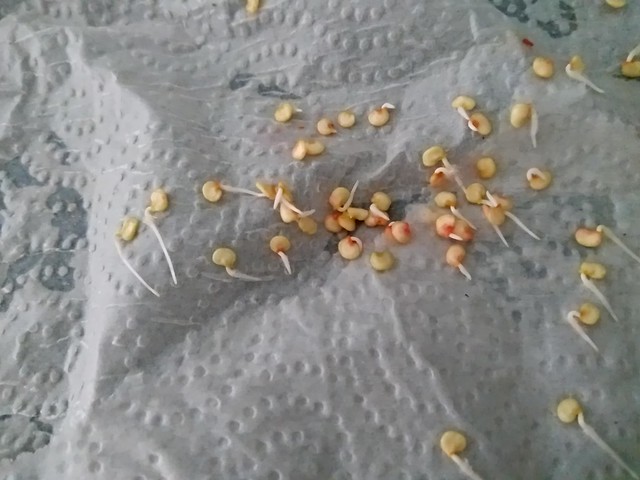
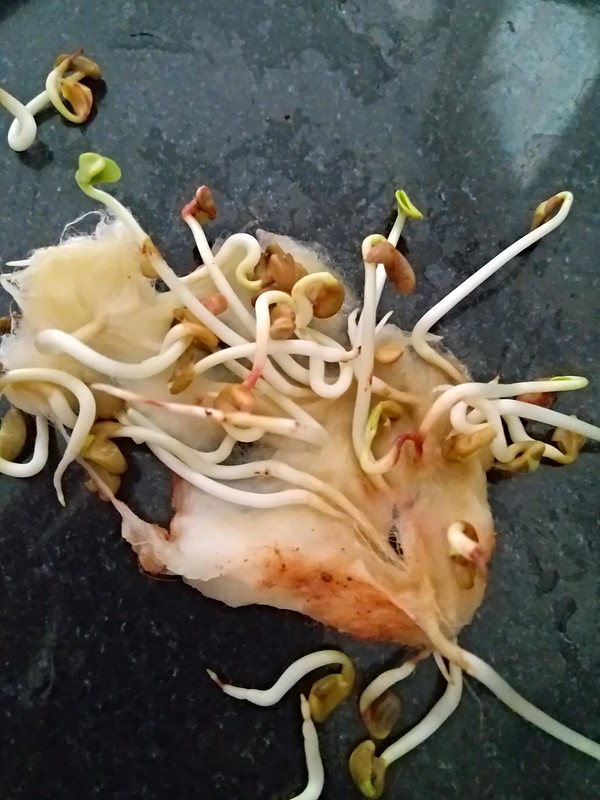
This is how you germinate seeds in a cotton wool or paper towel, without soil.
Some tips to make this method work:
- Take care not to crowd the tissue with too many seeds.
- Keep the cotton moist, not wet.
- Place this in shade, not full sun
- Once transplanted, keep it in shade until a few leaves emerge. Placing them in direct sunlight will dry the seedlings.
3 REASONS WHY SEEDS DON’T GERMINATE
From my mistrials, I have realized seeds germinate late or do not at all for a number of reasons.
- Poor quality seeds. If the seeds are too old or not store under right conditions, they have poor germination rates. Label them and keep them in a cool place. Avoid handling them with soiled hands.
- Planted too deep: if they are placed too deep in dense, it will be difficult for the roots to find their way to the surface.
- Dry surface: consistent moisture is required. If the surface dries out, the chances of germination are bleak.
I think of this process similar to sprouting. A soil medium is not required. Just the right environment – good quality seeds, moisture and warmth.
Give it a shot and let me know if it worked for you.
Image courtesy: 2,- Iulian Pana on Unsplash, 3 – Chu Tai on Unsplash
